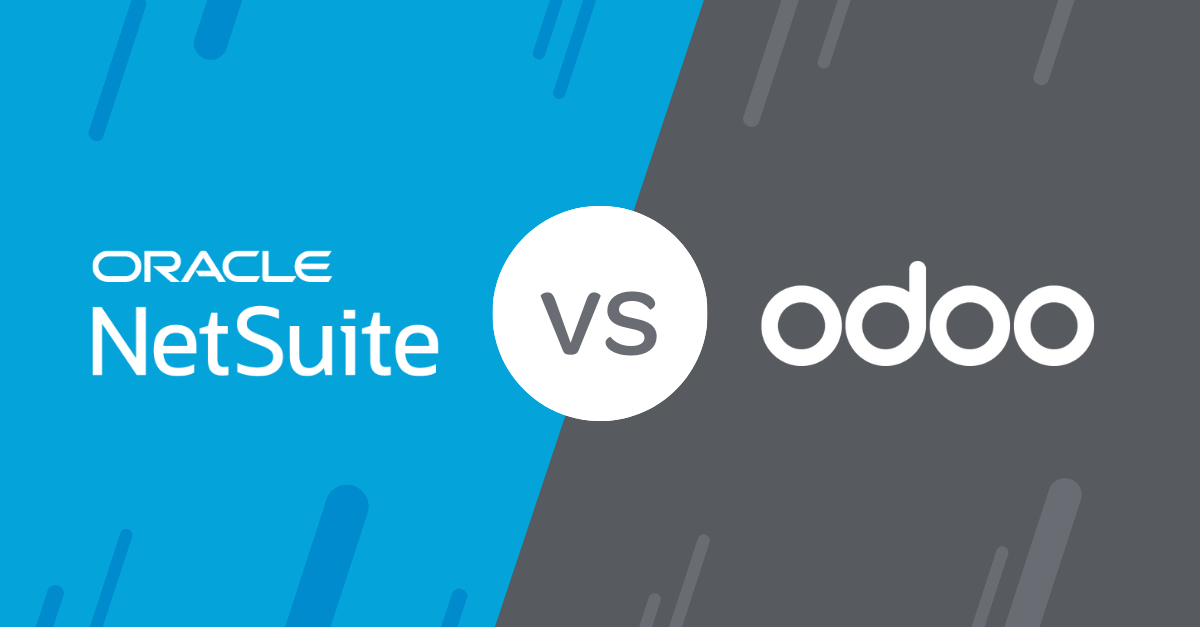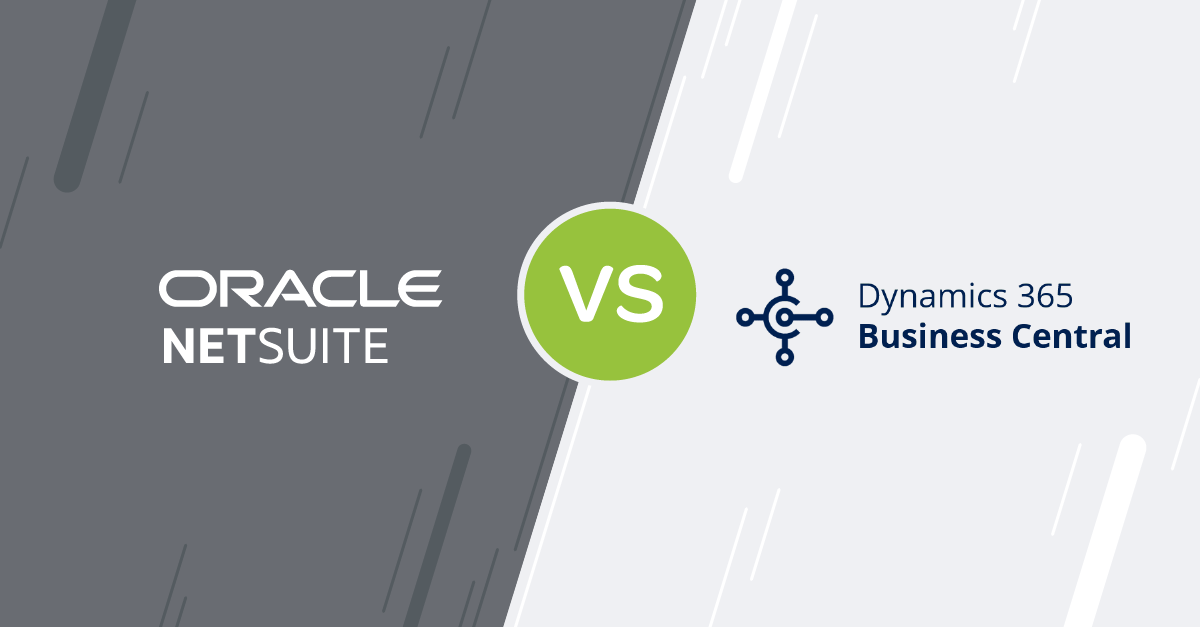Blog
Share this
Odoo vs. NetSuite: Which ERP is Right for Your Business?

by Carly Caines on February 12, 2025
When your business starts to outgrow basic software, it’s time to consider an ERP (Enterprise Resource Planning) system. ERP can streamline your operations and take your business to the next level by integrating the core functions of your business into one unified platform. But comparing ERP solutions is no easy task and the pressure to find the right one can be overwhelming.
Two popular ERP options for growing companies are Odoo and NetSuite. While both are powerful, they cater to different needs. In this blog, we’ll break down the key differences between these systems to help you decide which one fits your business best.
Here’s a quick comparison to get us started:
| Odoo | NetSuite | |
| Deployment | Open source, on-premise or cloud | Fully cloud-based |
| Ideal Users | Small businesses, startups | Small to mid-sized businesses |
| Modules & Features | Modular apps, may have limited functionality | A suite of modules with options for advanced functionality |
| Customization | Highly customizable through apps, community modules and through hiring developers | Highly customizable using SuiteScript and the SuiteCloud framework (we recommend working with an experienced NetSuite partner for customizations) |
| Extensibility | Third-party apps (no certification process) | Easy to extend functionality with certified SuiteApps |
| Ease of Use | User-friendly and requires minimal training | User-friendly but with a steeper learning curve due to its advanced functionality |
| Scalability | Limited scalability for medium-to-large enterprises | Designed for growth |
| Pricing | Start for free with one app or access all apps for a low monthly subscription and extra costs for add-ons | Subscription pricing based on your company size, modules needed and number of users |
| Support | Community-driven, third-party services | Comprehensive support from NetSuite and your implementation partner |
What is Odoo?
Launched in 2005, Odoo has become a popular choice for businesses looking for a flexible solution because of its open-source nature. With its modular design, your business can pick and choose from 30+ apps like inventory, accounting, CRM and ecommerce to suit your needs. Odoo’s flexibility makes it a popular choice for startups or businesses with niche requirements.
What is NetSuite?
NetSuite is a fully cloud-based ERP designed to streamline your operations and scale with ease. First launched in 1998 and acquired by Oracle in 2016, NetSuite has become a trusted platform worldwide.
With pre-integrated modules and a focus on scalability, NetSuite is ideal for businesses seeking a unified system to manage financials, inventory, ecommerce and more. It’s particularly popular in industries like wholesale distribution and manufacturing, where robust functionality and real-time visibility are critical. VIDEO
Comparing Odoo vs. NetSuite

Deployment
Odoo
Odoo offers flexible deployment options, including on-premise installation, private hosting or Odoo’s cloud-based solution. This flexibility allows your business to choose what best fits your preferences and IT strategy.
On-premise deployments give your business full control over your systems but come with higher hardware and maintenance costs. Private hosting provides a middle ground but often requires coordination with a third-party vendor, which can increase complexity. Meanwhile, Odoo’s cloud solution can simplify deployment, but may not provide the same level of control as other options.
NetSuite
NetSuite is fully cloud-based, offering global accessibility and centralized data management. Backed by Oracle infrastructure, NetSuite provides robust security measures, high system uptime and built-in data backups, ensuring reliability for businesses of all sizes.
Another key advantage is that NetSuite handles regular updates and system maintenance for you. With automatic upgrades and continuous improvements, your business always has access to the latest features, security enhancements and compliance updates—without the hassle of manual intervention.
Ideal users
Odoo
Odoo is a good fit for small businesses and startups with straightforward processes and simpler requirements. While its open-source framework allows for extensive customization to meet niche needs, the platform’s native functionality isn’t as deep as NetSuite’s in key areas like financials and inventory. As a result, businesses with more complex operations may find themselves heavily reliant on customizations, which often require technical expertise or in-house developers.
NetSuite
NetSuite is a great fit for many businesses of all sizes. If you’re a small business looking for a cost-effective way to get started with essential ERP features, NetSuite Starter offers those core functionalities and a streamlined implementation process to adopt ERP quickly.
But NetSuite isn’t just for small businesses—it’s also built to support growing and larger organizations with more complex needs. If you’re looking for more advanced features, scalability and the ability to handle multi-location operations, NetSuite provides a platform that will evolve with your business.
Modules & features
Odoo
Odoo’s modular architecture allows your business to customize your system by selecting only the apps you need. There are 30 main applications that cover various business functions such as CRM, inventory and accounting.
While Odoo provides broad coverage across various business functions, it has limitations that can be challenging for fast-growing or more complex organizations. For instance, its accounting module lacks a unified chart of accounts and automated period-close processes, which are critical for managing complex financial operations or multi-entity businesses.
Similarly, the inventory module does not support group average LIFO (Last-In-First-Out) inventory valuation or specific lot-numbered inventory tracking, features essential for industries with strict inventory management needs. Additionally, many advanced features require third-party integrations or custom development, which can increase implementation time and overall costs.
NetSuite
NetSuite provides an all-in-one solution with a suite of modules that work seamlessly together. You can start with the basics like financials and inventory management, and then expand to more advanced features as needed with advanced NetSuite modules or SuiteApps.
One of NetSuite’s key advantages is its robust financial management capabilities, including advanced tools for global compliance, tax automation and multi-currency support. These features make it an ideal choice for businesses operating across multiple regions, ensuring smooth financial operations.
Additionally, NetSuite integrates advanced technologies like AI, which enhances efficiency and decision-making by providing your business with actionable data and insights. Leveraging an ERP that adopts AI will give your company a competitive edge, as you can operate more efficiently and make faster, data-driven decisions.
Customization
Odoo
Odoo is highly customizable due to its open-source nature, allowing you to directly access and modify the source code to tailor the system to your specific needs. This level of flexibility is a key advantage if your business needs a solution that can be extensively tweaked and modified.
However, this level of customization comes with both pros and cons. On the positive side, your business can achieve a highly personalized system. On the downside, customization can make future upgrades challenging, as each update may require significant changes to accommodate the custom code. Additionally, with so much customization, you may become highly dependent on one or a few developers to manage the system. This creates a risk, as the knowledge of how the system works may be concentrated in a small team, making it difficult to maintain or scale if those developers are unavailable.
NetSuite
Whether you need custom fields, objects or workflows, NetSuite has options to customize your solution, including SuiteScript (NetSuite’s coding language) and the SuiteCloud development framework. You can also enhance your system’s functionality by adding SuiteApps, which are pre-built applications that extend NetSuite’s core capabilities. While customizations still require experienced developers, most businesses opt to work with a NetSuite partner for these changes, rather than handling them in-house. This approach provides the added benefit of having a whole team of experts to support and maintain the system, ensuring redundancy and scalability for future needs.
Ease of use
Odoo
Odoo presents a user-friendly and smooth experience, making it accessible even for non-technical users. However, while the interface is intuitive, the level of customization can be overwhelming for those who aren't familiar with technical setups. You may require additional training or external support to fully leverage Odoo's capabilities.
NetSuite
NetSuite also offers a user-friendly interface, and its partner network (like ProjectLine) ensures that your team will be comfortable with the system. NetSuite’s unified platform also assists the ease of use by streamlining your business functions, reducing silos and making it easier for different departments in your business to collaborate.
Training options are available through both NetSuite and ProjectLine, ensuring your team is fully equipped to use the system effectively. Whether you need a quick overview or in-depth, role-based training, NetSuite and ProjectLine can guide your team at every step to ensure smooth adoption and long-term success.
Scalability
Odoo
Odoo is suitable for small businesses and startups, offering flexibility and ease of use. However, its scalability can be limited for larger or rapidly growing organizations. As your business expands, custom solutions in Odoo may become increasingly complex and hard to manage, especially as the need for more advanced features or integrations grows.
Additionally, Odoo is not well-suited for businesses with multi-currency operations, intercompany transactions or complex localization needs. Its limitations in handling global compliance and financial consolidation make it less ideal for companies with international operations. If your business requires robust financial management across multiple regions, you may find those gaps challenging as you scale.
NetSuite
NetSuite was designed with scalability in mind, making it an ideal solution for growing businesses. You can start small with a focus on critical areas like financial processes and then expand at your own pace by adding modules for inventory, procurement, fulfillment and more as you require.
Pricing
Odoo
Odoo has a low entry cost, especially with the free Community Edition, making it an appealing option for startups or small businesses on a tight budget. However, as your business grows and you need additional apps or third-party integrations, costs can increase. The paid Enterprise Edition includes more features and support but requires ongoing fees for apps, hosting and customization.
NetSuite
NetSuite uses a subscription-based pricing model, which is determined by factors like your business's size, needs and the modules you choose. While the initial costs might be higher compared to some alternatives, the subscription model offers predictability in your expenses, making it easier to budget.
Support
Odoo
The support available for Odoo’s free edition is mainly community-driven, relying on forums and third-party developers. However, the paid Enterprise Edition provides more structured support options.
NetSuite
NetSuite offers extensive support through its customer service and partner network, including dedicated account managers and access to helpful resources.
Should you use Odoo or NetSuite?
At the end of the day, the best ERP solution is the one that fits your business needs. It all comes down to your requirements and what you want to achieve with your new ERP system.
Odoo is best suited for small companies with simple requirements and no major growth plans. It’s ideal for startups or businesses that can operate within the scope of Odoo’s modules. However, your business will need to budget for external developers or technical teams to handle setup and customization, as Odoo lacks some of the advanced features that larger or more complex businesses require.
NetSuite is an excellent choice for businesses with growth plans and more complex needs. If your company requires advanced financial capabilities, global management or robust inventory management, NetSuite provides a comprehensive solution. It’s a great fit for businesses with a larger team spread across different departments, as it centralizes all your business data, making it easier to keep everything in sync. As your business grows, NetSuite can grow with you, offering advanced features and the scalability to support increasing demands. If you're looking for a powerful, all-encompassing system that can evolve with your company’s needs, NetSuite would be the preferable choice.
Choosing the right ERP is only half the battle—implementing it effectively is the key to long-term success. This guide will show you how to avoid common ERP implementation challenges, weigh the pros and cons of buying directly from NetSuite, and find the right partner to support your business needs.
Share this
Stay in the Know!
Join other SMEs who receive our monthly ERP insights, tips and best practices.
You may also like

ERP Funding for Canadian Businesses

Should You Work with a NetSuite Implementation Partner or Go Direct?



